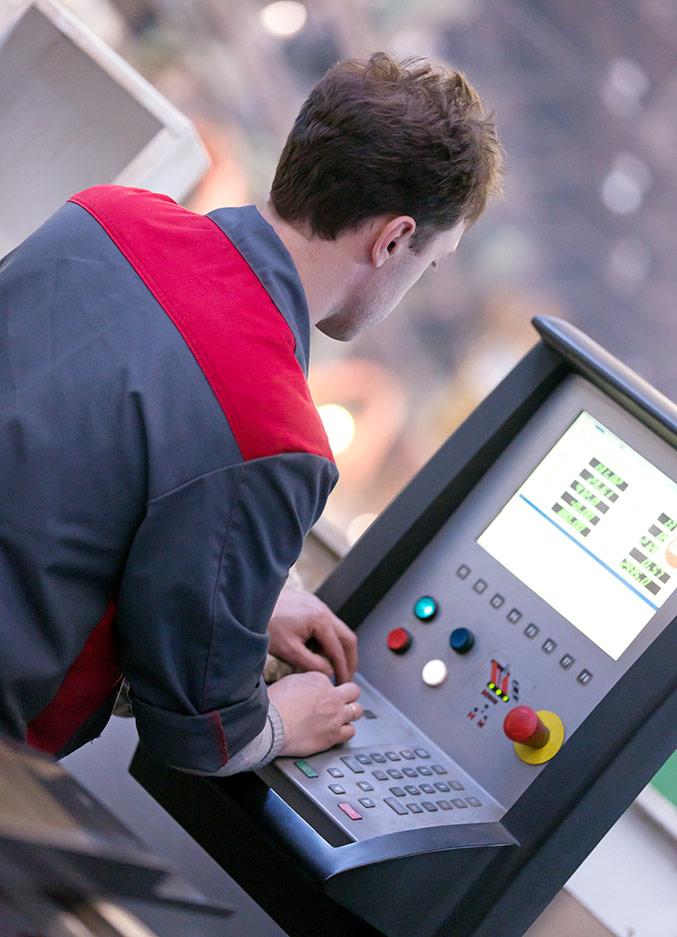Skip to contentPage load linknumerical control, machine, machine tool, manufacturing, downtime, fanuc, milling, automation, productivity, spindle, troubleshooting, calibration, ball screw, accuracy and precision, lathe, screw, power supply, original equipment manufacturer, expert, cnc machine service, machine service, laser, knowledge, customer, servo drive, longevity, customer service, brand, motion, north america, robotics, cobot, plasma cutting, warranty, evaluation, zip code, emergency, grinding machine, cnc router, salt lake city, electronics, coolant, reputation, inventory, vibration, quality assurance, metal, aerospace, rapid prototyping, cutting tool, turning, plastic, prototype, corrosion, steel, foam, engine, stainless steel, surface finish, drill, powder coating, alloy, workpiece, anodizing, acrylonitrile butadiene styrene, medical device, brass, geometry, plating, copper, automotive industry, titanium, polyvinyl chloride, coat, wear, polycarbonate, electrical discharge machining, sheet metal, lead, polyoxymethylene, composite material, polyether ether ketone, gear, sandblasting, polyethylene, friction, dimension, diameter, bronze, metal fabrication, polytetrafluoroethylene, zinc, insulator, laser cutting, specification, abrasion, mold, rotation, chuck, nylon, powder, bearing, complex geometry, passivation, machinist, quality control, plasma, router, nickel, aircraft, toughness, ratio, thermoplastic, wood, mass production, angle, construction, iso 13485, raw material, complexity, online cnc machining, cnc machining service, cnc turning service, machining, custom cnc parts, cnc machining quote, machining services, cnc turning services, cnc machined parts, cnc milling services, thermal expansion, chromate conversion coating, turbine, polystyrene, polypropylene, innovation, consumer electronics, transmission, quality management system, wire, chemical resistance, casting, bead, computer program, gold plating, stiffness, as9100, drill bit, energy, surface roughness, carbon, iron, design for manufacturability, mass, hardness, polyetherimide, jig, polyurethane, silver, consumer, carbon steel, polishing, pipe, plywood, electroplating, electropolishing, quality management, engraving, black oxide, cabinetry, radius, landing gear, tool steel, thermoforming, quantity, titanium alloys, bar stock, fiberglass, cast iron, welding, wear and tear, stress, agriculture, laser engraving, supply chain, ether, ductility, waste, inch, bit, communication, electric discharge, volume, chloride, moisture, length, mill, machine shop, drilling, inspection, inconel, learning curve, production, cnc milling, cnc turning
Frequently Asked Questions
What is a CNC service technician?
A CNC service technician is an expert in maintaining, repairing, and troubleshooting computer numerical control (CNC) machines used in manufacturing and production processes.
Is it hard to operate a CNC machine?
Operating a CNC machine requires training and skill, but it is not inherently difficult. With proper instruction and practice, users can effectively operate CNC machines to achieve precise and consistent results.
Who works with CNC machines?
CNC (Computer Numerical Control) machines are used by machinists, engineers, and manufacturers who require precision-based production processes for various industries such as automotive, aerospace, and manufacturing.
What is the common problem of a CNC machine?
Common problems of CNC machines often involve mechanical issues such as worn components, alignment problems, or electrical failures that can lead to decreased performance and accuracy.
What qualifications does a CNC service technician need?
CNC service technicians typically need a combination of technical training, hands-on experience, and certifications in CNC machine repair and maintenance to ensure efficient and reliable service for clients.
How long does CNC machine training take?
The CNC machine training typically takes between 2 to 4 weeks, depending on the complexity of the machine and the individual's prior experience. The training covers operating procedures, programming, and maintenance to ensure efficient and safe operation of the CNC machine.
What are the roles of a CNC operator?
The roles of a CNC operator include programming, operating, and monitoring CNC machines to produce parts and components with precision and accuracy. They ensure optimal machine performance, troubleshoot issues, and make necessary adjustments to maintain efficiency.
What skills are essential for CNC technicians?
The essential skills for CNC technicians include proficiency in programming, operating, and troubleshooting CNC machines, as well as mechanical aptitude, attention to detail, and problem-solving abilities to ensure efficient operation and maintenance of CNC systems.
How to troubleshoot CNC machine issues effectively?
Troubleshooting CNC machine issues effectively involves systematically identifying the problem, checking electrical connections, inspecting mechanical components, and following manufacturer's troubleshooting guidelines to resolve the issue and minimize downtime.
What types of CNC machines require service?
All types of CNC machines, including mills, lathes, routers, and plasma cutters, require regular service and maintenance to ensure optimal performance and minimize downtime.
How often should CNC machines be serviced?
Regular CNC machine servicing is recommended to maintain optimal performance and extend the machine's lifespan. The frequency of servicing can vary depending on factors such as machine usage, operating environment, and manufacturer recommendations, but generally, CNC machines should be serviced every 6 to 12 months to ensure reliable operation.
What are signs a CNC machine needs repair?
Signs a CNC machine needs repair include unusual noises, decreased performance, error messages, and visible wear or damage on components. Regularly monitoring these indicators can help identify issues before they worsen and lead to costly downtime.
How does CNC machine maintenance improve performance?
Regular CNC machine maintenance helps improve performance by ensuring optimal operating conditions, reducing downtime, and extending the machine's lifespan, thereby enhancing productivity and cost-effectiveness for the business.
What tools are needed for CNC servicing?
The tools needed for CNC servicing typically include precision measurement instruments, tooling for adjustment and repair, diagnostic software, and specialized cleaning supplies to maintain the machine's performance and accuracy.
Why is precision important in CNC operations?
Precision is crucial in CNC operations as it ensures the accurate manufacturing of intricate parts and components, minimizing defects and maximizing the efficiency of the production process.
What software is used for CNC programming?
The software used for CNC programming typically includes CAD (Computer-Aided Design) and CAM (Computer-Aided Manufacturing) applications, such as Mastercam, Fusion 360, SOLIDWORKS, or Autodesk PowerMill, which allow users to design parts and generate the necessary CNC machine code.
How does a CNC technician ensure accuracy?
CNC technicians ensure accuracy through meticulous calibration, regular maintenance, and close monitoring of machine performance. They carefully adjust tool offsets, check part dimensions, and verify program code to maintain precise control over the machining process.
What safety measures should CNC operators follow?
CNC operators should follow proper safety measures, such as wearing personal protective equipment, following machine operating procedures, and maintaining a clean and organized work area to prevent accidents and ensure the safe operation of CNC machines.
What are industry standards for CNC servicing?
The industry standards for CNC servicing typically include regular maintenance, prompt repair of breakdowns, use of genuine spare parts, and adherence to manufacturer guidelines to ensure optimal performance and extended machine lifespan.
What common mistakes occur during CNC operation?
Common mistakes during CNC operation include improper tool selection, incorrect feed and speed settings, inadequate workpiece fixation, and failure to properly maintain the machine and tools, which can lead to reduced efficiency, product quality issues, and machine damage.
How can downtime be minimized in CNC operations?
Minimizing downtime in CNC operations can be achieved through proactive maintenance, quick access to replacement parts, and efficient repair services to ensure CNC machines remain operational and productive.
What advancements are influencing CNC technology today?
Advancements in computer software, automation, and sensor technology are significantly influencing CNC technology today, enabling increased precision, efficiency, and remote monitoring capabilities for CNC machines.
How can CNC technicians enhance production efficiency?
CNC technicians can enhance production efficiency by performing regular maintenance, optimizing machine settings, implementing preventive measures, and ensuring prompt repair of any issues, thereby minimizing machine downtime and maximizing productivity.
What challenges do CNC technicians face in repairs?
CNC technicians often face challenges in repairs, such as diagnosing complex mechanical and electrical issues, accessing hard-to-reach components, and ensuring the proper calibration and alignment of CNC machines to restore their optimal performance.
What do CNC operators need to know about materials?
CNC operators need to understand the properties and characteristics of different materials, such as hardness, density, and machinability, to ensure optimal performance and longevity of CNC machines when processing various workpieces.
How to choose the right CNC service provider?
Choosing the right CNC service provider involves considering their expertise, response time, availability of spare parts, and commitment to minimizing downtime for your CNC machines.
What are the costs associated with CNC machine upkeep?
The costs associated with CNC machine upkeep include regular maintenance, repair of worn or damaged parts, software updates, and labor expenses. These costs can vary depending on the frequency of use, age, and complexity of the CNC machine.
What certifications are available for CNC professionals?
The certifications available for CNC professionals include NIMS (National Institute for Metalworking Skills) certifications, PMPA (Precision Machined Products Association) certifications, and certifications from machine tool manufacturers like Haas, Mazak, and Fanuc.
How do CNC machines differ from manual machines?
CNC machines differ from manual machines in their ability to perform complex operations automatically, with increased precision and efficiency, while manual machines rely on human control and dexterity.
What maintenance tasks can operators perform themselves?
Operators can perform routine maintenance tasks on CNC machines, such as cleaning, lubricating, and inspecting key components to ensure optimal performance and minimize downtime.
cnc lathe service for house, cnc machine servicing experts, in house cnc service, precise cnc service for house, house cnc, cnc service for house




